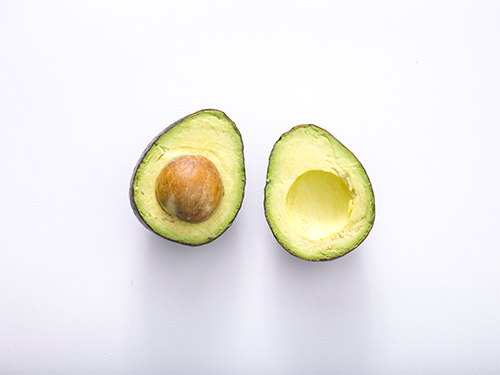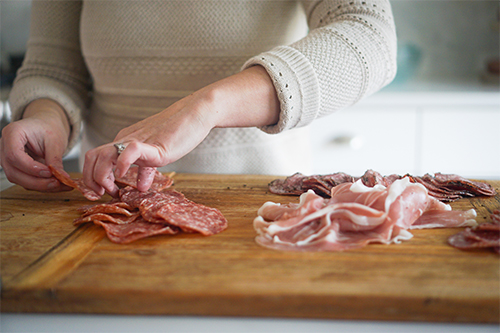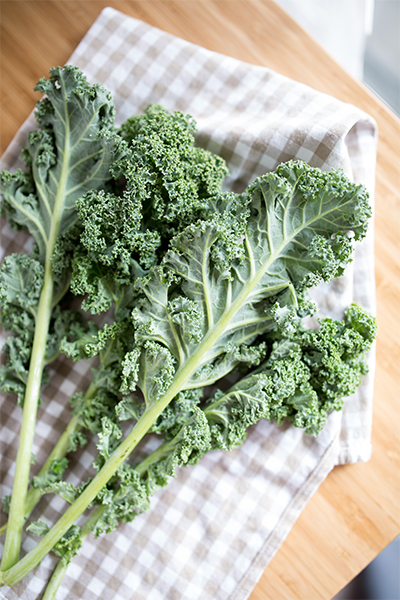If you’re looking to drop some pounds or push past a weight loss plateau, you’ve probably heard the hype surrounding the keto diet. In a nutshell, keto is a high-fat, moderate-protein, and low-carb diet.
At first glance, the buzz-worthy diet seems too good to be true: Go ahead, order that hamburger and add cheese! But — womp, womp — the keto rules are actually pretty strict. You’ll need to hold the bun (and even the ketchup) on that aforementioned cheeseburger. Plus, to get this diet right, you can’t simply indulge in steak nights. Leafy greens are the key to weight-loss success.
So, how exactly does keto work? The goal is to deprive your body of carbs so that you stop burning glucose for energy and rely instead on fat as your fuel. As you shift your metabolic state, the diet requires some serious willpower. You can’t bank on a cheat day to satiate your carb cravings because you need to diligently keep your body in the fat-burning state of ketosis. For most people, eating more than a half of a plain hamburger bun would be enough to disrupt the diet.
“Many don’t realize that seemingly small variations in your macronutrients distribution can have a meaningful impact on keto’s effectiveness,” explains Pam Nisevich Bede, MS, RD, and keto expert with Chicago-based Abbott, a healthcare company.
If you’re thinking about giving keto a test run, here are 10 things health experts say you really need to know.
1. You’ll need to count your macros

Research shows a macros ratio of 75 percent fat, 20 percent protein, and 5 percent carbohydrates has been tied to successful weight loss, and specifically weight loss from fat rather than muscle, explains Nisevich Bede. She recommends consulting with your physician or dietitian before starting a new diet plan. This is especially important for keto because the macros are so precise. For example, not hitting your protein macros could translate to muscle mass loss, she explains.
2. Keto benefits could go beyond weight loss
While most people begin keto to cash in on the weight-loss benefits, the diet could also help you avoid that notorious afternoon energy slump. “Keto can also work well for those who seek steady energy levels as it lessens blood sugar spikes and valleys,” Nisevich Bede says. Also, she explains, many keto followers have anecdotally reported better mental clarity and focus once they reach ketosis.
3. You might come down with ‘keto flu’
Some people who are new to keto experience unpleasant side effects, Nisevich Bede says. In fact, “keto flu” is used to describe the headaches, nausea, fogginess, muscle cramping, and fatigue that oftentimes occur in newcomers who are trying the diet for the first time. Many of these symptoms can be remedied by getting enough water and electrolytes, she says.
4. You may lose a lot of pounds in the first week or so
Seeing the scale move in the direction you want it to go in can be motivating. But, a lot of the weight people lose in the first week or so of keto is actually water weight, experts explain. Expect frequent urination in the first few days following the keto diet, says Dr. Keith Kantor, nutritionist and CEO of the Nutritional Addiction Mitigation Eating and Drinking program. Why the water loss? Our bodies break carbs down to glucose, converting them to glycogen. For each gram of glycogen, the body stashes three to four grams of water. Without the glycogen reserves, your body starts releasing water weight. Kantor explains you may also be constipated due to the water loss.
5. It’s different from low-carb diets

While keto is ultra low carb, don’t mistake it for Atkins 2.0. The amount of fat you need on this diet distinguishes it from others. In fact, many people who believe they are following a keto diet are not actually eating enough fat to be in ketosis, explains Erica Ingraham, MS, RDN, with Listen Nutrition. Your body’s preferred energy source is carbohydrates, she explains. The keto diet is strict and you must eat a lot of fat, with about 60 to 75 percent of calories coming from fat. “If you do not consistently eat this amount of fat every day, your body will switch back to burning glucose for fuel.”
6. Carbs are hiding out in a lot of foods
So you know the bread basket is off limits if you’re doing keto. But, keto dieters are often surprised by many other foods that are ruled out because of their carb contents, says Megan Moore, RD, and a certified specialist in obesity and weight management. For example, root vegetables are high in carbs, which rules out beets, potatoes, and carrots from the way of eating. Dates, which are often used in energy ball recipes, are surprisingly high in carbs. Also, many condiments, like barbecue sauce, have carbs.
7. Your breath may change
A new term that’s being coined is “ketosis breath.” Those on the keto diet may notice their breath and urine begins to smell fruity or even similar to nail polish remover, explains Robert Santos-Prowse, clinical dietitian and author of “The Ketogenic Mediterranean Diet” and “The Cyclical Ketogenic Diet.” The reason for this is because a ketone body known as acetone is leaving your body through your breath and urine, he explains.
8. Calories can add up fast
On the plus side, many people lose weight on keto because they scrap processed foods like chips, crackers, cookies, and other snack foods. But, Kim Yawitz, a registered dietitian nutritionist with McDaniel Nutrition Therapy in St. Louis, points out that calories on keto can add up fast because fat contains more than twice the calories per gram as protein and carbs. If you’re eating more than your body needs to maintain your weight, you could actually end up gaining weight on keto, she explains.
9. Don’t overdo it on meat

Most people concentrate on the protein and fat components of keto, says Billi Green, RDN. But, too much protein can convert to glucose, which can make it tough for your body to reach ketosis, Green explains. While root vegetables and squash are off limits, leafy greens, cauliflower, and cabbage get the green light and are important for the diet because they’re high in fiber, potassium, and magnesium, Green explains.
Another word of caution: Animal proteins are high in saturated fats, and over-consumption could raise your cholesterol and put you at risk for heart disease, Yawitz explains. She recommends healthier sources of fat, including nuts, seeds, avocados, and olives in addition to a couple of servings each week of fatty fish like salmon.
10. It can be a tough diet to sustain
We’ll level with you: A keto diet can be very tough to maintain. It’s hard to avoid carbs altogether, especially in social settings, Yawitz points out. Plus, once you start eating carbs again, you’re likely to regain the weight you’ve lost. Before you start the diet, ask yourself if it’s something you truly can maintain.
So, with that explainer out of the way, do you think the keto diet is a fit for you?
 Brittany Anas is a freelance writer who specializes in health, fitness, and travel writing. She also contributes to Men’s Journal, Women’s Health, Trip Savvy, Simplemost, Orbitz, and Eat This, Not That! She spent a decade working at daily newspapers, including The Denver Post and the Daily Camera in Boulder, Colorado, and she is a former federal background investigator. In her free time, Brittany enjoys hiking with her gremlin-pot belly pig mix that the rescue described as a “Boston Terrier” and coaching youth basketball. She also works with domestic abuse survivors, helping them regain financial stability through career coaching. Follower her on Twitter and Instagram.
Brittany Anas is a freelance writer who specializes in health, fitness, and travel writing. She also contributes to Men’s Journal, Women’s Health, Trip Savvy, Simplemost, Orbitz, and Eat This, Not That! She spent a decade working at daily newspapers, including The Denver Post and the Daily Camera in Boulder, Colorado, and she is a former federal background investigator. In her free time, Brittany enjoys hiking with her gremlin-pot belly pig mix that the rescue described as a “Boston Terrier” and coaching youth basketball. She also works with domestic abuse survivors, helping them regain financial stability through career coaching. Follower her on Twitter and Instagram.

